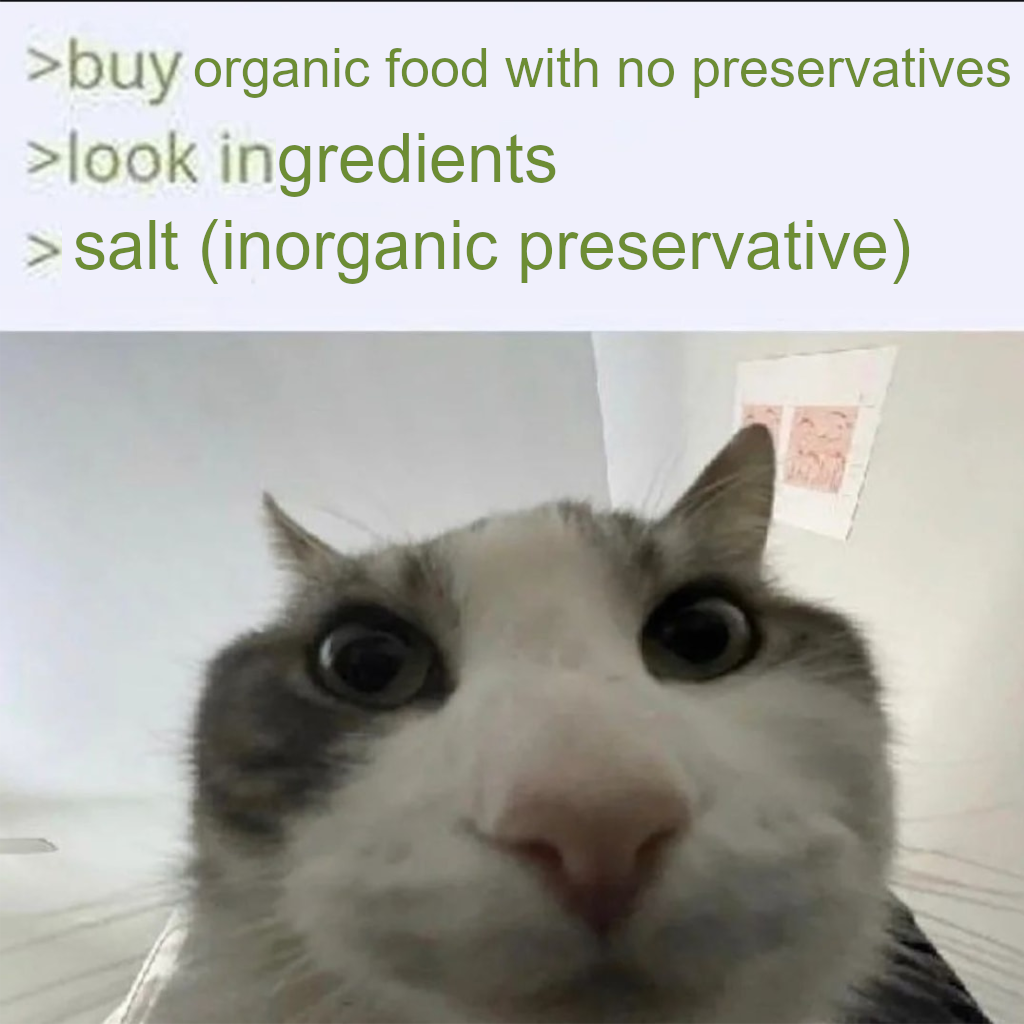this post was submitted on 26 Dec 2023
848 points (97.7% liked)
Memes
45679 readers
880 users here now
Rules:
- Be civil and nice.
- Try not to excessively repost, as a rule of thumb, wait at least 2 months to do it if you have to.
founded 5 years ago
MODERATORS
you are viewing a single comment's thread
view the rest of the comments
view the rest of the comments

"Organic" and "nonGMO" are two things that will actively make me avoid your product.
Stupid question, what's wrong with organic?
It's a heavily abused and arbitrary marketing term that doesn't actually indicate anything about what the food is made of or how it's made or grown. It also doesn't indicate anything about how healthy the food is or how good it tastes. At most it's slightly better for the environment in some areas with some brands when used properly, but even then regulations are too lax and inconsistent worldwide for it to be a trustworthy label.
This is false. The reality is that USDA organic does have meaning. It's certainly less meaning than implied, but the binary thinking leads to an incorrect view like yours. I actively avoid organic if it's more expensive, but when it's about the same, it's clearly somewhat better to some degree
Not everything that is labeled organic is USDA Organic.
Right. I'm just saying that it's untrue that organic has no meaning. As usual, you gotta do your research
I did do my research. There's no evidence of any health benefit from eating organic foods and the environmental benefit is relatively minor depending on the country and ultimately no more effective (often less effective) than other dietary lifestyle changes like vegetarianism or veganism or even just reducing the amount of meat you eat. Depending on how the word organic is used on the packaging it could mean the food contains anywhere from 50-90% "organic" products. The USDA rating only accounts for the standards of one country, not the whole world, not to mention even the USDA rating doesn't exclude all fertilizers or all GMO products, but organic stuff is commonly described and marketed as being "pesticide and GMO free food". "Organic" food is constantly marketed and viewed as being healthier despite there being no actual evidence supporting that. None of that contradicts what I said in my first comment. It is an arbitrary and abused term that doesn't actually tell you anything about the food reliably. I'm not saying it's completely meaningless entirely I'm just saying it has little meaning, certainly much less than most people believe, due to a lack of consistency, constant lies in marketing, and the low level of impact it has on the environment compared to other comparable dietary options. You also don't even need to buy stuff labeled as organic in order to eat organic, since lots of organic foods aren't labelled.
By all means I would love more strict wide-spread regulation and enforcement of the term "organic" based around maximizing its environmental impact, but at the moment it's little more than a marketing tool for most companies.
Well I never said you didn't do your research, but if you're lumping all those products together like this, I think that speaks for itself.
Those products all lump themselves together under the term "organic", that's the problem.